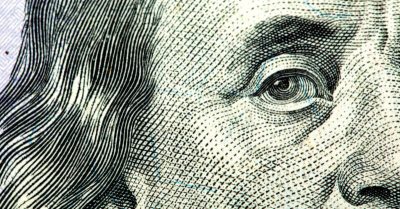A Decentralized Economy Is Key to Preserving Freedom, Economist Tells Kim Iversen

All Global Research articles can be read in 51 languages by activating the Translate Website button below the author’s name (desktop version)
To receive Global Research’s Daily Newsletter (selected articles), click here.
Follow us on Instagram and Twitter and subscribe to our Telegram Channel. Feel free to repost and share widely Global Research articles.
***
The current inflation crisis is the direct result of intentional decisions made by central banking institutions, according to banking and development economist Richard Werner, Ph.D.
In 2020, the world’s central banks, including the U.S. Federal Reserve, acted in a “coordinated fashion” and enacted an “intentional policy” they knew would cause massive inflation 18 months down the road, Werner told political commentator Kim Iversen on a recent episode of “The Kim Iversen Show.”
The inflation that began in late 2021 — which we are still experiencing — had nothing to do with an energy crisis or wars, Werner said.
“Nobody can say this was a mistake. They [the central banks] on purpose created this inflation — that’s what my work shows and there’s no doubt about that,” Werner said.
Werner, a professor at De Montfort University in the U.K., created the Quantitative Easing (QE) model — also called the “Quantitative Theory of Credit” — which he says is “arguably the simplest empirically-grounded model that incorporates the key macroeconomic role of the banking sector.”
QE is a kind of monetary policy that involves a central bank purchasing securities from the open market to reduce interest rates and increase the money supply.
Iversen told Werner he is an interesting figure because QE recently showed up in the news for exacerbating the current financial situation.
“A lot of people would blame you, as the person who invented Quantitative Easing, for the crisis that we’re in,” Iversen said. “At the same time, a lot of those people that feel that way are also the very people who don’t trust this central digital currency [and] don’t trust the World Economic Forum — and you seem to be also in that group.”
“I think that blows a lot of people’s minds,” she said. “They don’t really know what to make of you and your policies. Are you the good guy, are you the bad guy?”
Werner said most central banks incorrectly applied his QE policy by following only part of his advice — and at the wrong time.
QE was designed for a time of deflation and a contracting money supply, Werner said, not for a time period when we already had an expanding money supply and expanding demand. “It was not designed for this situation,” he said.
Want freedom? Use cash, support local banks, prevent central bank digital currencies
Werner urged listeners to make sure the economy “stays decentralized” by using local banks — and setting up new local banks.
“Central planners don’t like that,” he said. “They want companies and banks to merge. That’s really part of a Sovietized system — too much central control — [and] we need to do the opposite,” he told Iversen.
Werner said using cash is a means of decentralization and freedom, whereas anything digital and central is going to be about control.
“To support cash is a key way to preserve our freedom,” he said.
According to Werner, we must prevent the introduction of central bank digital currencies (CBDCs) — government-backed digital currencies issued by a central bank — “because that is the epitome of a centralized, controlled, even totalitarian system because, of course, they’re going to be programmable and they will be programmed,” he told Iversen’s listeners.
“It’s just nothing like we’ve ever had in the past and any totalitarian dictatorship could only dream of such enormous control tools,” he added.
On Nov. 15, 2022, the Federal Reserve Bank of New York announced it was teaming up with global financial giants including Citigroup Inc., HSBC Holdings Plc., Mastercard Inc. and Wells Fargo & Co. to launch a 12-week digital dollar pilot program to assess how banks can process digital dollar tokens within the central bank system and to quantify their potential impact on speeding up payments, the New York Fed told Reuters.
The results of the pilot program — which uses simulated data in a test environment — have yet to be publicly released.
Watch here:
*
Note to readers: Please click the share buttons above. Follow us on Instagram and Twitter and subscribe to our Telegram Channel. Feel free to repost and share widely Global Research articles.
Suzanne Burdick, Ph.D., is a reporter and researcher for The Defender based in Fairfield, Iowa. She holds a Ph.D. in Communication Studies from the University of Texas at Austin (2021), and a master’s degree in communication and leadership from Gonzaga University (2015). Her scholarship has been published in Health Communication. She has taught at various academic institutions in the United States and is fluent in Spanish.
Featured image is from CHD

